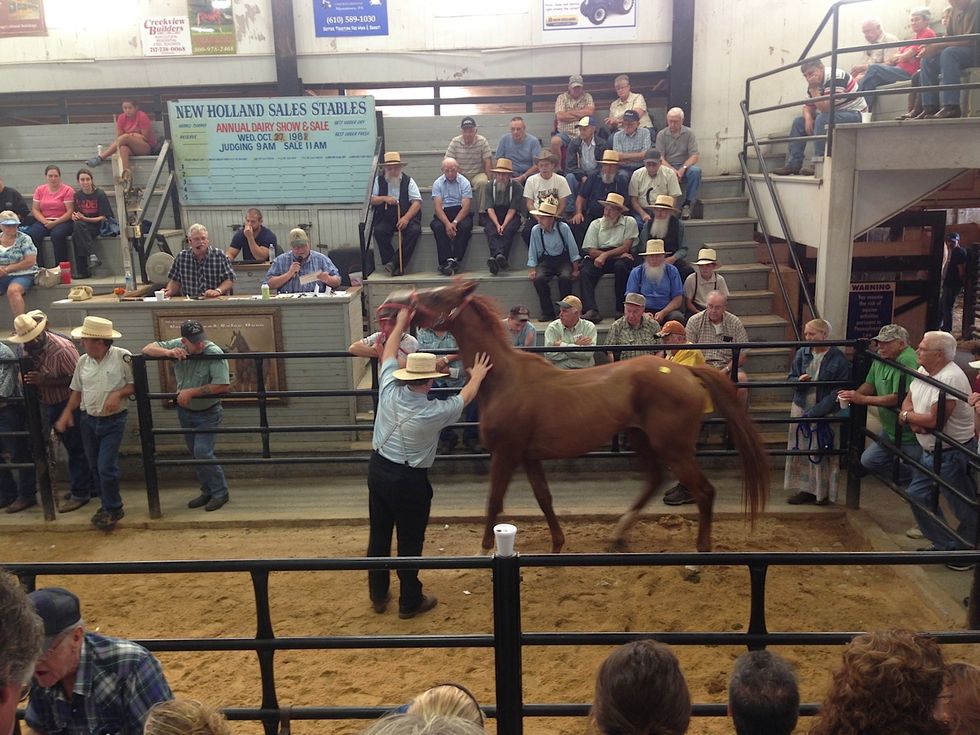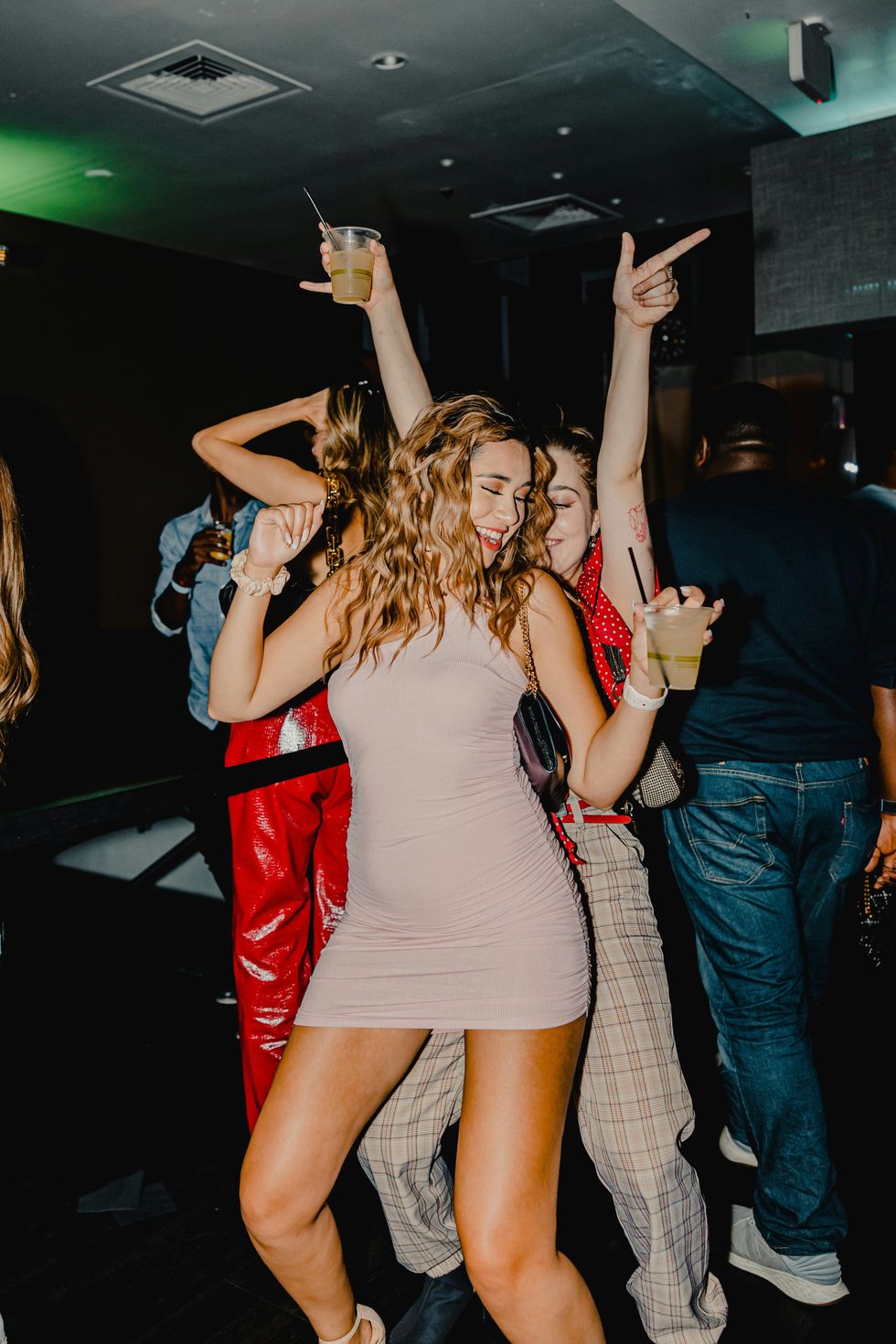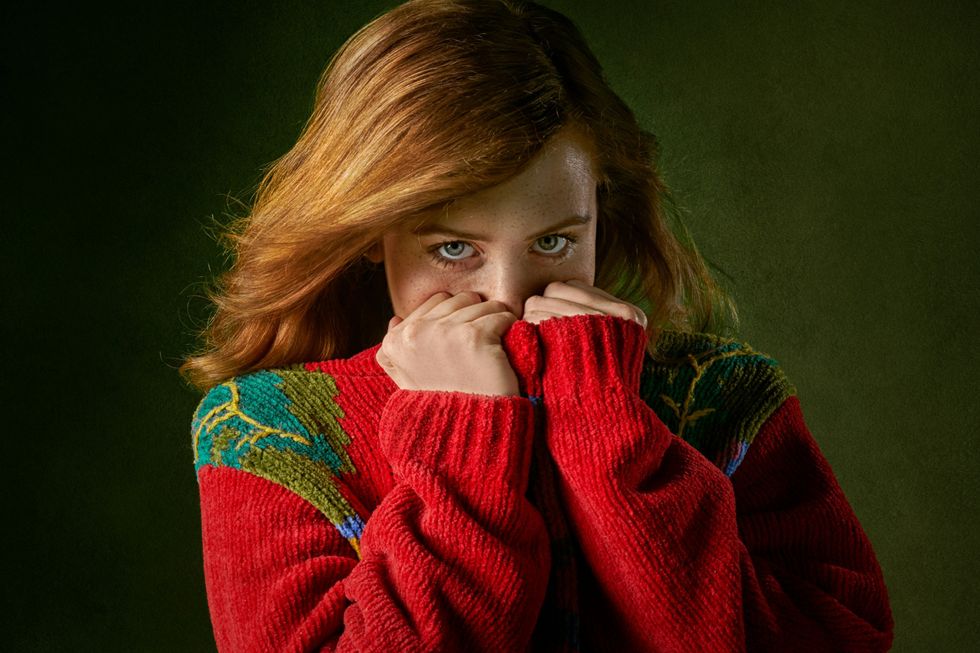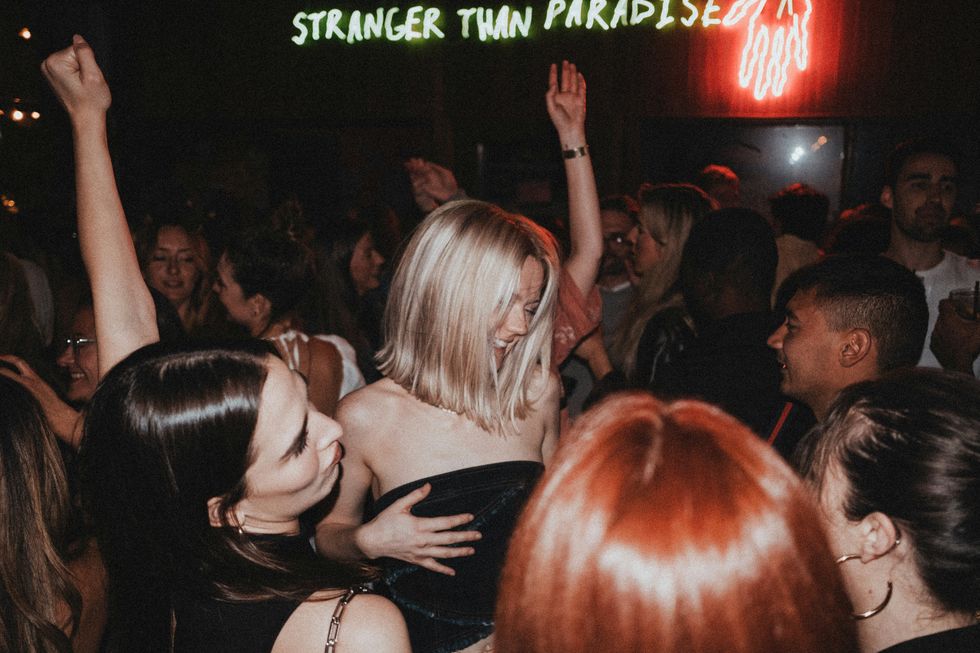Pre-2016 you could find me somewhere between "well, I don't know" and "we can find a way to save them" on the question of horse slaughter. Growing up in Maryland, I didn't really have to think about or face the issue too much; however, once I moved to Oklahoma, got a horse of my own and immersed myself fully in the equine community, it was time to take a side. In spring of 2016, I heard a woman named Skye McNiel in Oklahoma City speak on the issue, and I was convinced.
Before you call me a horse-hating satan worshiper, listen to what I have to say; here are the four reasons I support horse slaughter in the U.S.:
Recommended for you
1. Humane.
It's not a secret that what Mexico does with horses sent for slaughter is an actual, legitimate horror show. God forbid, if you had to send a horse to slaughter, would you rather send her to die painfully or to a plant in the U.S. where inspectors can make sure that horses are put down painlessly with respect?
Putting aside the actual slaughter itself, let's talk about the thousands of miles of transport in crowded livestock trailers, the kill pens, over stuffed, depressing journey that the horses take when it could have been a short trip and a painless end.
2. The end of suffering, diseased and mentally-disturbed horses.
Let's be real here. Euthanizing horses is expensive, not to mention disposal hassles on top of the emotional costs. Selling a horse to horse slaughter plants in the U.S. not only ensures that your horse is humanly put down, but it is cost effective and ensures your horse goes on to serve a new purpose. This isn't to say that euthanasia is lesser, it definitely isn't, however sometimes there is unfortunately no other option or someone who can afford to put down older, diseased or just plain mentally disturbed horses.
3. No room.
Instead of first addressing the obvious Mustang issue, I'd like to draw attention to why we can't just treat this like a cat/dog issue. Unwanted horses cannot all fit into pounds and foster programs for the simple reasons of size, nutritional needs and complicated care/disposal processes.
Now let's talk about those Mustangs. Look, obviously I love horses. I love the American Spirit, and I wholeheartedly want to see wild Mustangs forever roaming the Western U.S. But we have a problem. The population of Mustangs has hit thirty-three thousand, stunningly over the Bureau of Land Management's order of keeping the population around twenty-three thousand. The problem for those who don't know much about these free ranging horses is this: by the year 2030, a new study predicts that the U.S. government will have spent $1.1 Billion (with a B) in food/shelter for these usually self-sufficient horses.
Another issue is tracking, vaccinating and checking in on the Mustangs. This is a daunting task that would be made so much easier (and cheaper) by reducing and keeping the herds at the twenty-three thousand mark. And just in case you want to know why we need to vaccinate them, how about you do some research on contagious and deadly equine viruses.
4. Improvement of the horse market.
Now is when if you didn't think I was evil before, you'll think I am the devil.
It's the age-old secret of capitalism that the better quality product turns a better profit. Similarly in the horse market, the better quality horse means more money spent and pumped into the beating heart of the American equine industry. Unfortunately, without horse slaughter, we've got some real low-quality horses coming into the sale barn; this drives down money spent, earned and earned-by-cut by the sale barn owners. This only begins to touch on the issues that are plaguing the equine market, but for sake of argument, let's look at one example of how horse slaughter would help the market:
Horse slaughter puts what some refer to as "salvage value" on horses. Believe it or not, there is actual use for horse bodies after death beyond meat. This salvage value places a market floor on horses, ensuring that, no matter what, there is some value in the selling of the horse. I highly recommend that you read more here and do more research on your own!
I think we've lost sight of horses in a lot of ways. Horses represent a lot of different things to a lot of different people. They are everything from our best friends to our livelihoods to therapeutic tools. The bottom line is that horses are private, personal property and, in the most literal sense, livestock. Though their use has evolved over the years, horses are not equal to humans, and you cannot approach issues like this thinking one way or another about the whole equine population.
You can find more information about horse slaughter here:
AVMA Horse Slaughter FAQ
Salon - Horses to the Slaughter
You can also read more about Sky McNeil's journey here.






 "I thought you knew what you signed up for."
"I thought you knew what you signed up for." man and woman in bathtub
Photo by
man and woman in bathtub
Photo by  four women sitting on black steel bench during daytime
Photo by
four women sitting on black steel bench during daytime
Photo by  Uber app ready to ride on a smartphone.
Photo by
Uber app ready to ride on a smartphone.
Photo by  woman in red tank top and blue denim shorts standing beside woman in black tank top
Photo by
woman in red tank top and blue denim shorts standing beside woman in black tank top
Photo by  blue marker on white printer paper
Photo by
blue marker on white printer paper
Photo by  welcome signage on focus photography
Photo by
welcome signage on focus photography
Photo by  woman in white and black striped long sleeve shirt lying on bed
Photo by
woman in white and black striped long sleeve shirt lying on bed
Photo by  pink pig coin bank on brown wooden table
Photo by
pink pig coin bank on brown wooden table
Photo by  person holding iPhone 6 turned on
Photo by
person holding iPhone 6 turned on
Photo by  person holding pencil near laptop computer
Photo by
person holding pencil near laptop computer
Photo by  person slicing vegetable
Photo by
person slicing vegetable
Photo by 
 woman covering mouth with sweater
Photo by
woman covering mouth with sweater
Photo by  person holding remote pointing at TV
Photo by
person holding remote pointing at TV
Photo by  a woman with her arms raised in a crowd of people
Photo by
a woman with her arms raised in a crowd of people
Photo by  "Shocked disbelief: '95% of the population is undateable?'"
"Shocked disbelief: '95% of the population is undateable?'"


 Energetic dance performance under the spotlight.
Energetic dance performance under the spotlight. Taylor Swift in a purple coat, captivating the crowd on stage.
Taylor Swift in a purple coat, captivating the crowd on stage. Taylor Swift shines on stage in a sparkling outfit and boots.
Taylor Swift shines on stage in a sparkling outfit and boots. Taylor Swift and Phoebe Bridgers sharing a joyful duet on stage.
Taylor Swift and Phoebe Bridgers sharing a joyful duet on stage.



